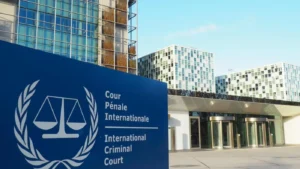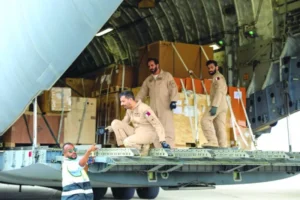United Nations High Commissioner for Refugees welcomes launch of birth certification for Malian refugees in Mbera camp
GENEVA, Switzerland, February 23, 2018/ — This is a summary of what was said by UNHCR spokesperson Cécile Pouilly – to whom quoted text may be attributed – at today’s press briefing at the Palais des Nations in Geneva:
UNHCR, the UN Refugee Agency, welcomes the launch of birth certification for thousands of Malian refugee children in Mbera camp, in south-east Mauritania.
In a ground-breaking development for refugee protection in the country, the Mauritanian authorities have started issuing birth certificates for some 7,600 Malian children that were born to date in the camp. They have also set up a system allowing for all new-borns in the camp to be directly registered from now on.
Birth certificates will help fight early and forced marriages, as proof of age can be crucial in identifying such cases and providing evidence to the referral institutions. In 2017, UNHCR recorded 97 cases in Mbera camp, but we fear that many more may go unreported. Together with partners, our teams are working to identify and assist children at risk.
Proof of age will also play a significant role in the eventual voluntary repatriation of the refugees, should security conditions in Mali allow.
The birth certification exercise was launched mid-February by the country’s population registrar. UNHCR collaborates with authorities to strengthen their technical capacity for the civil registration of refugees, and to provide life-saving assistance in the camp, such as food and water, education and medical services. We also work to lay the groundwork for establishing a national asylum system.
Since 2012, widespread insecurity in northern Mali has triggered displacement into Niger, Burkina Faso, as well as Mauritania which now hosts over 51,000 Malian refugees. Some 1,200 Malians were registered in Mbera in January this year alone. Refugees share accounts of threats, extortion and summary executions by armed groups, along with gruelling living conditions in their areas of origin.
We are particularly worried at the lack of funding for our operation in the country. Despite the US$20.1 million required for our operation in Mauritania in 2018, UNHCR has yet to receive any contributions. This means that the living conditions of refugees could further worsen, with food and water shortages, poor sanitary conditions, increased risk of disease and cuts to education programmes in Mbera.





